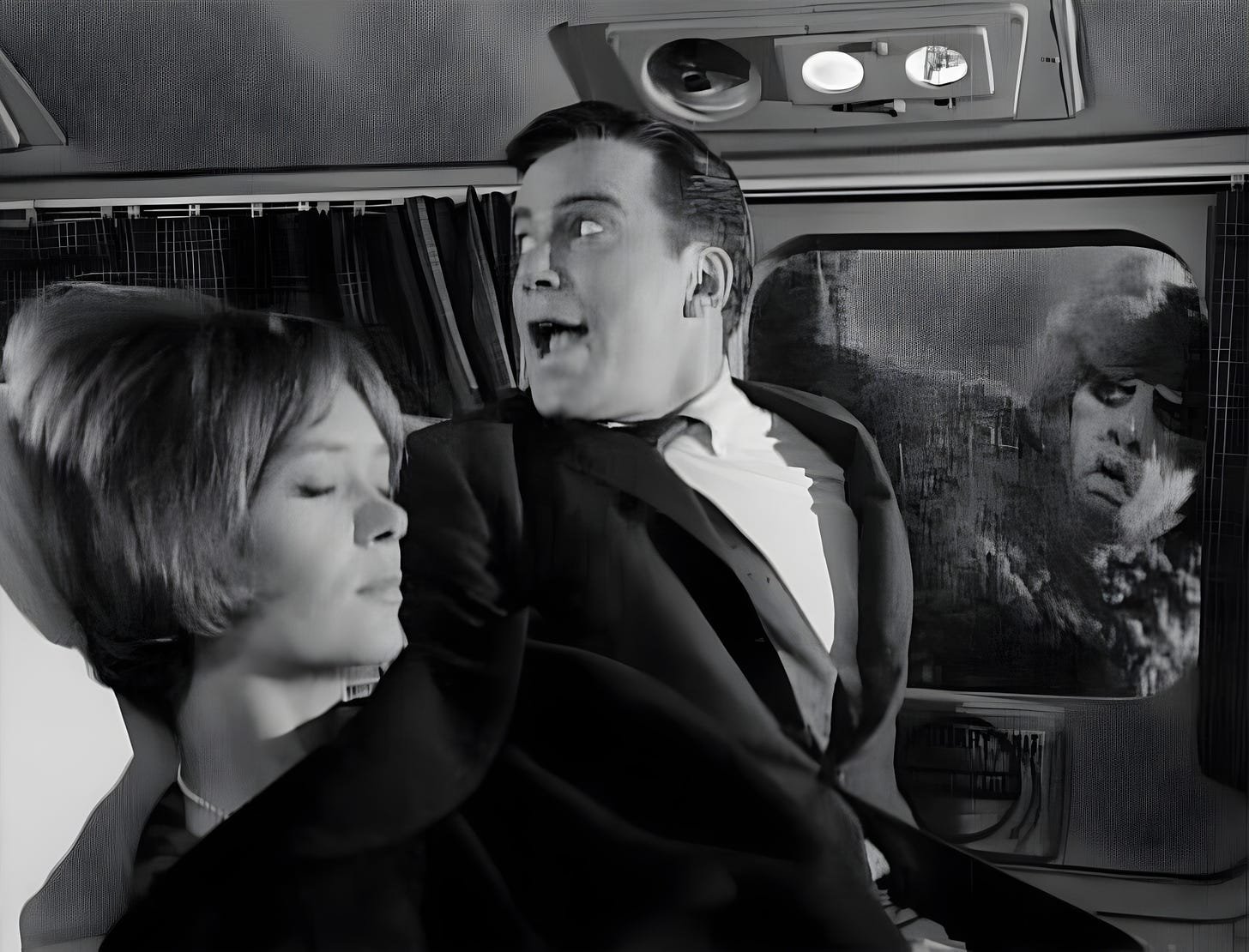Nightmare at 169,000 Feet
The moment when Captain Kirk finally made it to space: "All I saw was death."
William Shatner is a Canadian actor. He starred in the 1966 gothic horror film Incubus, the second feature-length movie ever made with all dialogue spoken in Esperanto. In this excerpt of an excerpt from William Shatner’s new book, Boldly Go: Reflections on a Life of Awe and Wonder, the actor reflects on his voyage into space on Jeff Bezos’ Blue Origin space shuttle on Oct. 13, 2021.
His despair at finally leaving gravity behind really makes you wonder if, instead of following bazillionaires into space, we should be fighting to fix the one planet we know that supports life.
We got out of our harnesses and began to float around. The other folks went straight into somersaults and enjoying all the effects of weightlessness. I wanted no part in that. I wanted, needed to get to the window as quickly as possible to see what was out there.
I looked down and I could see the hole that our spaceship had punched in the thin, blue-tinged layer of oxygen around Earth. It was as if there was a wake trailing behind where we had just been, and just as soon as I’d noticed it, it disappeared.
I continued my self-guided tour and turned my head to face the other direction, to stare into space. I love the mystery of the universe. I love all the questions that have come to us over thousands of years of exploration and hypotheses. Stars exploding years ago, their light traveling to us years later; black holes absorbing energy; satellites showing us entire galaxies in areas thought to be devoid of matter entirely… all of that has thrilled me for years… but when I looked in the opposite direction, into space, there was no mystery, no majestic awe to behold . . . all I saw was death.
I saw a cold, dark, black emptiness. It was unlike any blackness you can see or feel on Earth. It was deep, enveloping, all-encompassing. I turned back toward the light of home. I could see the curvature of Earth, the beige of the desert, the white of the clouds and the blue of the sky. It was life. Nurturing, sustaining, life. Mother Earth. Gaia. And I was leaving her.
Everything I had thought was wrong. Everything I had expected to see was wrong.
I had thought that going into space would be the ultimate catharsis of that connection I had been looking for between all living things — that being up there would be the next beautiful step to understanding the harmony of the universe. In the film Contact, when Jodie Foster’s character goes to space and looks out into the heavens, she lets out an astonished whisper, “They should’ve sent a poet.” I had a different experience, because I discovered that the beauty isn’t out there, it’s down here, with all of us. Leaving that behind made my connection to our tiny planet even more profound.
It was among the strongest feelings of grief I have ever encountered. The contrast between the vicious coldness of space and the warm nurturing of Earth below filled me with overwhelming sadness. Every day, we are confronted with the knowledge of further destruction of Earth at our hands: the extinction of animal species, of flora and fauna . . . things that took five billion years to evolve, and suddenly we will never see them again because of the interference of mankind. It filled me with dread. My trip to space was supposed to be a celebration; instead, it felt like a funeral.




I'm not sure why this post appeared in my email inbox. Must be some bug from the recent server work substack did as I read some of your other posts, and they're quite boring although replete with the word "conspiracy" usually with a negative connotation.
Are you related to that Irish dancer who used to be fairly popular or just another bullshitting Irishman? You write well but the intellectual heft is a bit lacking. The lack of depth on the PROMIS scandal you tried to cover is telling.